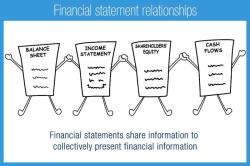Why corporate bonds might be right for You?
Investing in corporate bonds can be suitable for certain investors based on their financial goals, risk tolerance, and investment preferences. Here are several reasons why corporate bonds might be considered right for an investor:
Income Generation:
- Corporate bonds typically pay regular interest (coupon) payments to bondholders. This can provide a steady stream of income for investors seeking regular cash flow.
Fixed Income and Stability:
- Corporate bonds are fixed-income securities, meaning they provide a predetermined interest rate and fixed maturity date. This can appeal to investors looking for stability and predictable returns.
Diversification:
- Including corporate bonds in a diversified investment portfolio can help spread risk. Bonds may react differently to market conditions compared to stocks, providing a balance in a portfolio.
Lower Risk Compared to Stocks:
- While corporate bonds carry some level of risk, they are generally considered less risky than stocks. Bondholders have a higher claim on a company's assets than stockholders in the event of bankruptcy.
Risk Tolerance and Conservative Investors:
- Conservative investors or those with a lower risk tolerance may find corporate bonds appealing. The predictable income and relative stability can align with the risk preferences of certain investors.
Capital Preservation:
- Corporate bonds with high credit ratings are often associated with lower default risk. Investors seeking to preserve capital may consider investment-grade corporate bonds for their relative safety.
Professional Management through Bond Funds:
- Investors who prefer professional management of their bond investments can consider bond funds. Bond mutual funds or exchange-traded funds (ETFs) allow investors to access a diversified portfolio of bonds managed by professional fund managers.
Variety of Maturities and Issuers:
- Corporate bonds come in various maturities, allowing investors to tailor their investment horizon. Additionally, there is a range of issuers, from highly-rated investment-grade corporations to lower-rated high-yield issuers, providing options for different risk appetites.
It's important to note that while corporate bonds offer potential benefits, they also come with risks. Factors such as interest rate changes, economic conditions, and credit risk can impact bond prices and returns. Before investing in corporate bonds, it's advisable to assess individual financial goals, risk tolerance, and consult with a financial advisor to ensure alignment with overall investment strategies.
While not for everyone, corporate bonds can be an attractive investment option for certain individuals. Let's delve into the potential benefits and considerations to help you decide if they suit your financial goals:
1. Reasons for Suitability:
- Steady income generation: Corporate bonds offer predictable, fixed coupon payments at regular intervals, providing a reliable income stream for retirees or conservative investors.
- Portfolio diversification: Bonds generally have lower volatility than stocks, effectively diversifying your portfolio and mitigating risk through negative market correlations.
- Lower risk compared to equities: Compared to the fluctuating nature of stocks, bonds offer relative stability and protection against significant losses, particularly high-quality issues.
- Potential for capital appreciation: While not guaranteed, some bonds can experience price appreciation if interest rates decline or if the issuer's creditworthiness improves.
- Inflation protection: Certain types of bonds, like Treasury Inflation-Protected Securities (TIPS), offer principal values that adjust with inflation, protecting your investment from purchasing power erosion.
2. Characteristics and Benefits for Specific Investors:
- Retirement planning: Predictable income from bonds can provide a stable source of income during retirement, complementing pensions or Social Security.
- Risk-averse individuals: For those prioritizing capital preservation, bonds offer relative stability compared to riskier assets like stocks, providing peace of mind.
- Short-term goals: Investors with near-term goals like a down payment for a house might find short-term bonds preferable, aiming for capital preservation and predictable returns.
- Institutional investors: Insurance companies, mutual funds, and other institutions often utilize bonds to provide reliable returns and balance their portfolios' risk exposure.
3. Considerations and Risks:
- Interest rate risk: As interest rates rise, existing bond prices can fall, potentially leading to losses if selling before maturity.
- Credit risk: The issuer's financial health and default risk directly impact the bond's value. Defaults, while rare, can lead to significant losses.
- Liquidity risk: Some bonds might be less liquid than others, making it difficult to sell them quickly without price concessions.
- Call risk: Some bonds give the issuer the right to redeem them before maturity at a predetermined price, potentially impacting your expected income stream.
- Inflation risk: Fixed-rate bonds offer no protection against inflation, potentially eroding your purchasing power over time.
4. Aligning with Investment Goals and Risk Tolerance:
- Conservative investors: High-quality, short-term bonds can provide stable income and capital preservation.
- Moderate investors: Diversifying with a mix of bonds and stocks can offer both income and growth potential while managing risk.
- Aggressive investors: Using bonds strategically, such as during market downturns to rebalance portfolio risk, can complement their growth-oriented strategies.
5. Expert Opinions and Analyses:
- Financial advisors: Many financial advisors recommend including a portion of bonds in diversified portfolios, particularly for retirement planning and risk mitigation.
- Investment firms and organizations: Research reports and analyses from reputable organizations like Moody's, Standard & Poor's, and Vanguard often highlight the potential benefits and considerations of corporate bonds in various investment strategies.
- Financial publications: Leading financial publications and news outlets regularly feature expert opinions and analyses on the bond market's outlook and potential opportunities for investors.
Remember, individual circumstances and risk tolerance play a crucial role in determining the suitability of corporate bonds. Evaluating your financial goals, risk appetite, and overall investment strategy is vital before making investment decisions. Consult with a financial advisor for personalized guidance and ensure your bond investments align with your specific financial objectives.













